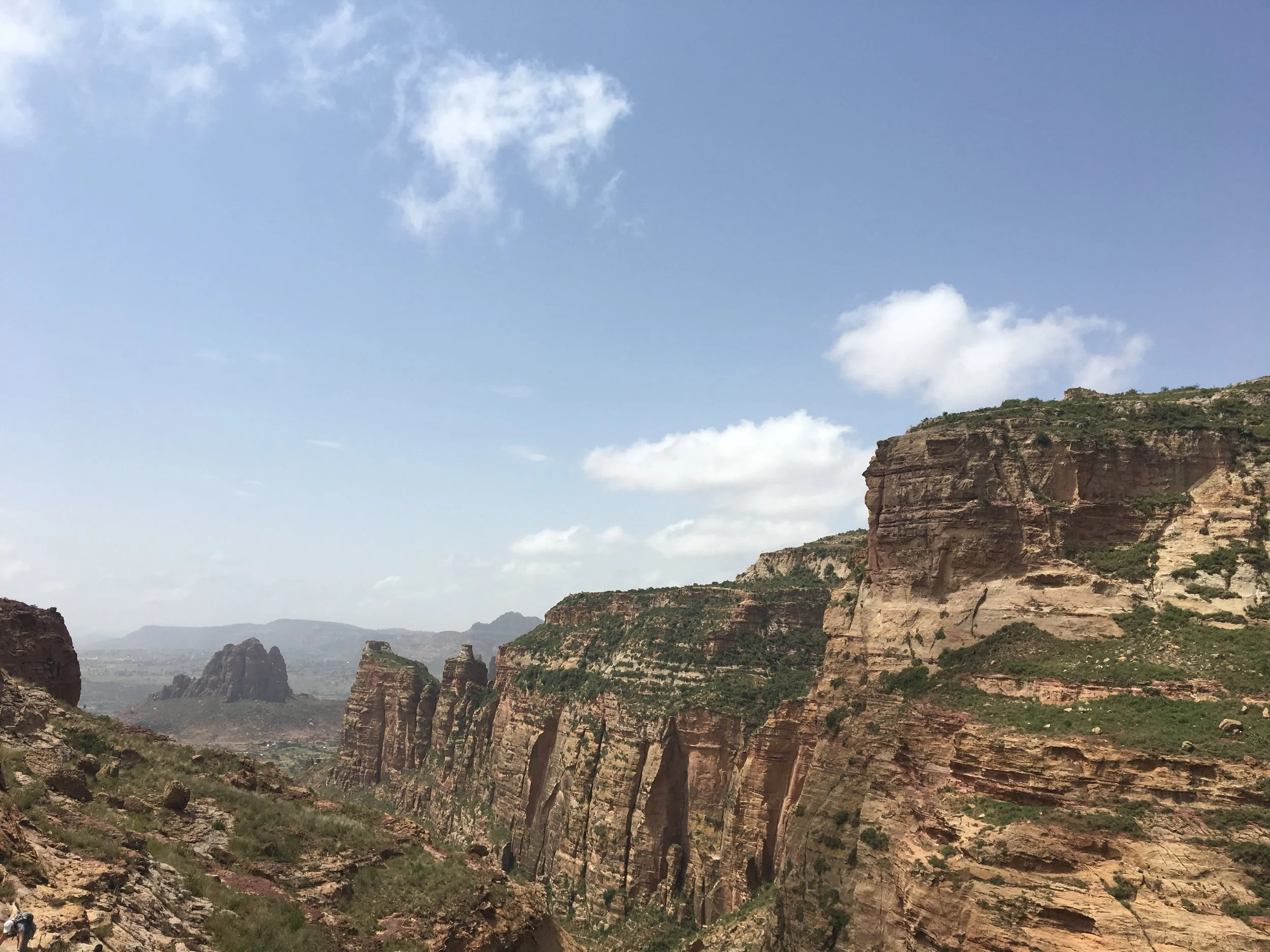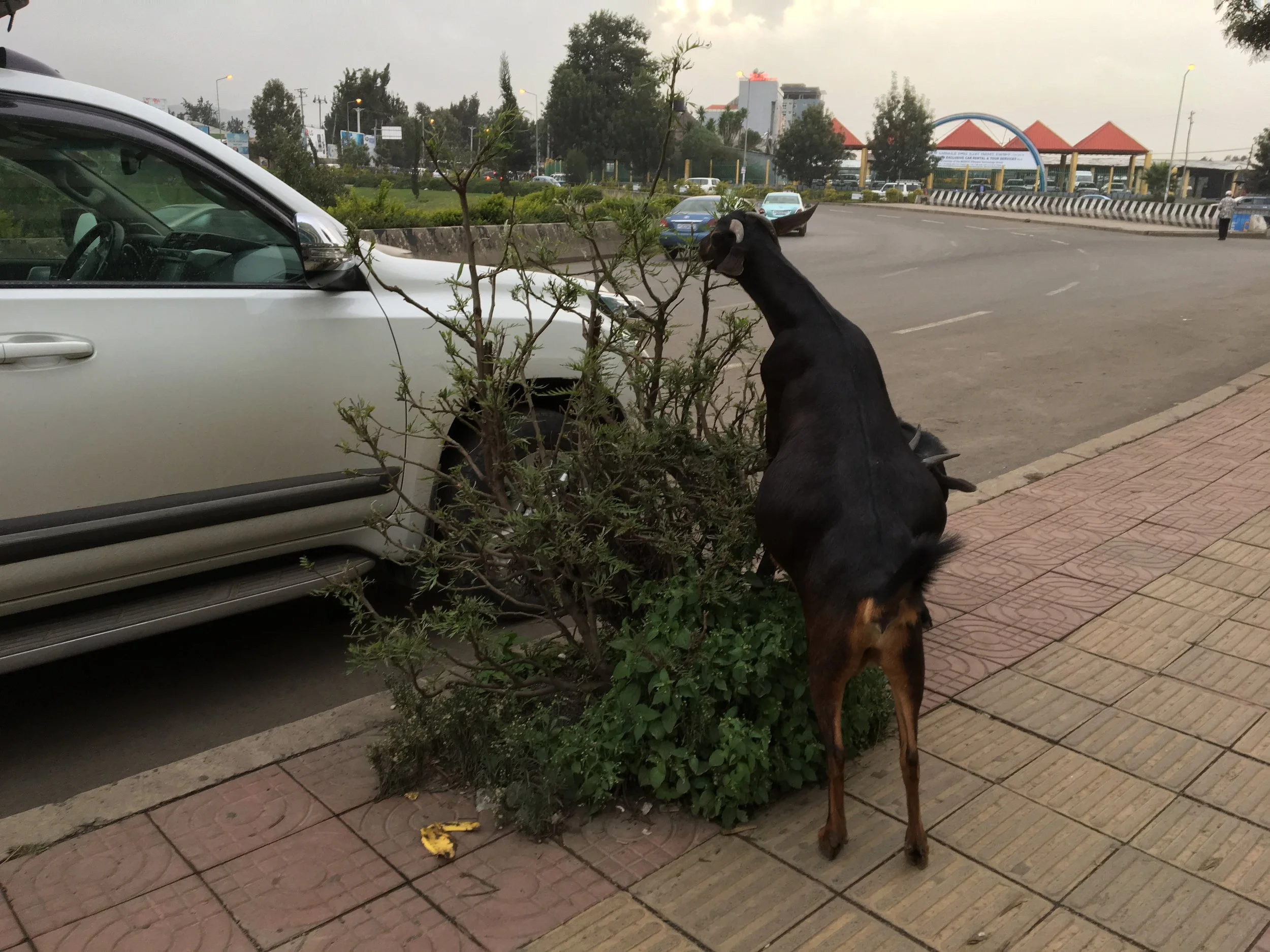The Fourth Month—Tahsas/December
“Summer. Hot and sunny with occasional light rains. Red aloes and thorny plants dominate a scorched landscape. Rivers become brooks, brooks go dry. Main harvests are finished. Peasants take teff to market and seed summer barley in irrigated fields. Traders load caravans with produce and hides to exchange for salt and imports; cattle pastured in the valleys. Judges begin riding circuits to hear litigation”.—The Wife’s Tale
Playing with tires (gomma) with Melaku and Mitata.
I love the way Ethiopian women sing as they are working or walking. Bayonet was singing a beautiful song that sounded like a lullaby.
Walked home in the moonlight through sleeping sheep.
A large green insect (a praying mantis?) in my room. I named it Aranguade (green). I was anticipating a lot of bugs living in a mud house but this is the first particularly large bug guest. Hopefully it’ll make itself useful and eat mosquitoes.
Waiting for the moment when I’ll be unfazed by monkeys running around my house.
Chickpeas have come into season. Farmers stop me on my walk to school and offer me a sprig. Students pass me handfulls as the come to dust my board before I begin class.
The farmers have been bringing their cattle and donkeys to school to graze on the grounds. During class a donkey brayed so loudly the class and I burst out laughing.
Spent the winter solstice without electricity for five days—gives a new meaning to the “festival of light”. Makes you realize what you take for granted.
I have new neighbors—a couple, the wife is from Bahrain and speaks Arabic in addition to Amharic. She helped me wash my laundry and asked if I knew Arabic, I told her the three words I know salam, maselema, and shukran (hello, goodbye, and thank you). She thought I was from Israel. Her husband is Ethiopian, they’re Muslim. They invited me over for dinner and we sipped coffee with milk late into the night.
Went to the bank with Samay, my newest friend. Because it was St. George’s day the bank was having a buna ceremony and I was given coffee and bread. It felt strange to celebrate a holiday in a bank but was an interesting intersection of modern and tradition merging.
I arrived at school one day and noticed there were very few students. I asked one of my fellow teachers, expecting perhaps it was some obscure holiday. He said, “the sun has not yet risen, it’s cloudy. When there is sun the students will come.”
New Year’s Eve. It’s not New Year’s in Ethiopia because the new year is in September (it’s currently 2011).Samay and Geta helped me make buna ceremony for my compound family. Quickly Samay and I cooked up a fast shiro wot and Geta helped pop popcorn while we waited for the beans to roast. Even with help I realized how involved the process is, something which Ethiopian perform everyday, often more than once.
Sounds of Ethiopia
People calling eachother to join for a meal (nay buna tachi), the sound of someone pounding berbere in the giant wood mortar and pestles, the cricket chirping underscoring the song of the call to prayer from the church
An image:
A girl running to church throwing her natela over her head—catching the sunlight. Gracefully fluttering.
Everyday with Geta
Geta walked in with a grade 9 biology textbook and insisted I write down 5 of the questions for him.
Geta made bubbles with water and my laundry soap and tube of an empty pen.
Geta brought me fresh chickpeas which he boiled and insisted I eat they remind me of edamame.


